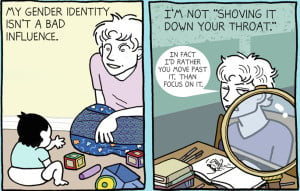
Shot of a group of friends catching up over coffee in a coffee shop
I am tired of talking about labor.
When I went through a recent trauma, I tried to put up boundaries around my time, space, and labor. The day it happened, I tried to say no to a white person’s request for it. Wait, actually, I did say no.
When you have to say no twice, you sometimes forget that you already refused. Or you can be left confused about whether or not you were being clear enough.
Every time I’ve had to say “no” more than once, I was being gaslighted, which is “a tactic in which a person or entity, in order to gain more power, makes a victim question their reality,” according to Stephanie A. Sarkis, Ph.D., with Psychology Today.
Unfortunately, gaslighting has been a common feature in my journey as a professional of color.
In that specific experience, the person denied me my pain.
They did not take no for an answer, even though I made my boundaries clear. As a result, I replayed the conversation over and over, wondering how my no was bulldozed into a squashed mess of confusion and labor-induced exhaustion.
White people: would you feel safe in my shoes?
White people: what would you do to ensure the safety of the Black people and people of color who work with and for you?
If you claim to be allies dedicated to fighting systematic and individual racism, you need to do better. Remind yourself on how to be an actual ally!
If you are exhausting and hurting Black and non-Black people of color around you because you won’t take “no” for an answer when you request labor from us, you are no better than the “other white people” you are attempting to work against.
It’s time to check your privilege, a process that is not meant to intimidate or shame you. It’s about evaluating what’s in your toolbox of resources, access, and opportunity, and how you are using them.
Here are four questions to interrogate as you engage with people of color and their labor:
1. Are you asking or demanding?
Many white people who approach Black and non-Black people of color for labor do not ask for our labor — they demand it from us.
Asking someone to do something leaves it open-ended with space for the person to say no. For example, the question, “If you are available and able today, would you like to _____?” is entirely centered on the other person’s needs, ability, and desire to do the request.
Demands back people into a corner. Demands make people afraid to turn you down.
I’m sure you don’t want to make people feel that way, so here is a guide that breaks down the difference between asking and answering, the consequences of both, and how to do them.
The most common opening for a demand that most white people don’t even realize is a demand is, “I need.”
Of course you have needs, but is it necessary that you consistently go to people of color, who also have needs that are systematically denied to them, to help you? Are you potentially putting them into a corner where the labor they provide might inadvertently harm someone else?
Robyn Matuto, a multimedia production assistant based in Toronto, frequently fields what appear to be innocent questions from white coworkers, but are actually requests for labor on Matuto’s part that often put her in less-than-comfortable positions.
“I often get people asking ‘is it right if I cast x for y role? Is it my job to write a role for x identity even though I’m white,’ stuff along those lines,” said Matuto. “It’s honestly such a catch-22 because I would want to give my input as a woman of color to make sure the representation is done properly and respectfully, but am I your gatekeeper? Am I co-signing on your narrative? If something goes astray, will you use me as your ‘well, my friend who is a woman of color says it’s okay’ cover?”
These considerations and intersections are on the minds of Black folks and people of color every time we are asked to carry the weight of these decisions. As we are working with white people, we’re also juggling the reality that our decisions and actions when engaging with you may impact another person of color in a negative way.
That is a massive responsibility, and one that we cannot carry alone.
It is important to reflect on how generations of access and entitlement to our labor across does not mean you automatically get it from us now.
2. Have you checked in?
It’s pretty important that you see us as human beings. That’s a non-negotiable. White people need to admit that they often don’t pay nearly as much attention to people of colors’ lives as they do to those of their white friends.
Take a peek at our social media (if you have access and permission), or go on Google and do some research before you ask us for labor. Life happens to everyone, and it is important to pay attention to it.
A better question: do you even know us? If you don’t, are you willing to invest the time and labor to do that, or will you only give just enough effort to have that one Black friend? And even then, are you a well-meaning white person who is doing harm to their Black friends without realizing it?
You can easily find stories online of how white people often approach strangers of color through social media and immediately request astronomical amounts of labor.
If you are looking for a guide to online etiquette while interacting with Black people and people of color, Shannon Barber has a list of recommendations. One of my favorites from Barber is, “If you want to tell your story about what a wonderful white person you are, take it to your own space because we’re not here for it.”
If you expect us to respect you and your needs, you need to demonstrate the same consideration, support and respect that you are already expecting of us.
That includes the small stuff — like actually knowing a person of color. If you’d like to make that effort, do not begin by bugging all the people of color around you on how to do that.
“White folks, I get it. You’re curious, you have questions that you genuinely want answered, and you think asking a person of color is a way to support and center them,” wrote Lina Houston of If/When/How.
“For people of color, each day is a barrage of microaggressions, macroaggressions, and interactions that highlight and trigger our personal identities of oppression. And let me tell you, it is exhausting,” Houston continued. “Although your question may have been the first time you thought about race today, your question may be a trigger for your friend/colleague/relative of color and it may be the twelfth one they’ve dealt with today. Their refusal to answer your question may be motivated by self-protection.”
You do not need to walk on eggshells around us. You do, however, need to communicate with us, and do it mindfully. All that we want is for the white people who approach us for our labor to be considerate of their position, and to bring that consideration and intention to the table.
3. Are you working with us, or making us work for you?
Labor (when it’s done well, at least) is an exchange. It is a transaction where both the needs of the person requesting labor, and the person performing it, are met.
When asking for labor from people of color, white people, you need to remember that the balance of power between yourself and the person you are requesting labor from will always be unequal.
As explained by P.L. Thomas on his blog, Radical Scholarship, “Privilege and power are inequitably pooled among white straight men,” says Thomas. “And thus, a key to eradicating all types of inequity—racism, sexism, homophobia, etc.—is for anyone with privilege to resist denying inequity, especially by focusing on individual examples and by ignoring the central role of power in all types of inequity such as racism.”
Power will always be in your favor.
With that in mind, working with us looks like checking in not only once, but consistently, about everything: How is the labor you are requesting impacting us? Are we getting tired? Do we need a break? Do we need more time? Do we need help? Are there other intersectional needs that need to be addressed throughout our labor, like our mental health?
Working with us looks like checking in with yourself, too: Do you have adequate compensation for our labor? Are there materials or supplies that we need, but that only you can afford? Are your requests inherently racist, derogatory or insulting? Are you requesting labor that is actually possible for us to do? Are you willing to be corrected if you are wrong?
Working with you on our work, is still work. If you value our labor, you need to put the work in, too, and do it with us.
4. Do you want us to be nice?
White people: why is it so important for us to always be nice to you? What does being nice even look like?
Being nice to a white person means acting and behaving like a white person. In case you forgot, we are not white.
Many social activist spaces that center people of color and Black people have a “no white tears” rule.
“This sort of rule is instilled because oftentimes, in other spaces, your emotions, and the emotions of other white people, are constantly centered, nurtured, and coddled when it comes to conversations about race,” wrote Jennifer Loubriel of The Body Is Not An Apology.
“Rather than focusing on the lived experiences and traumas of People of Color when talking about racism, the focus is placed on the host of emotions that white people go through when confronted with racism. Rather than focusing on how People of Color feel on an everyday basis from having to deal with racist institutions, interpersonal relationships, and ideologies, the focus goes to white people just beginning to confront how they benefit from racism on many levels.”
Asking people of color to be nice to protect your feelings (which is mostly white guilt, usually accompanied by white tears, if we dare to say no) as we do labor for you is ridiculous and selfish. I have no qualms about saying that — we can be compassionate and understanding for only so long.
Asking us to be nice to you is actually not nice of you. There is a difference between being civil, and asking someone to go above and beyond in their emotional performance around you because of them being a person of color.
We can do our work honestly and well. We can do it with passion, drive, motivation, and creativity. When you ask us to be nice, we immediately know that the rest of what we do does not matter to you, and that we do not matter to you.
***
If you want to counteract this dynamic, lean in with us. Listen to us. Get to know us. Recognize your privilege, and proactively work with it to create space for people of color to engage in opportunities that do not hurt us.
Pay us a fair wage, or provide adequate compensation after we complete our work. Invest in us: emotionally, financially, spiritually, mentally, physically.
We have known all along what we deserve, and it is time for you all to catch up.
[do_widget id=’text-101′]
Sophia Stephens is a freelance writer, journalist, speaker, educator and advocate based in Seattle, where she/they work with local and national organizations including The Stranger, Kids & Race, Seattle Theatre Group, Distinction Music Management, Youth Radio, and Northwest Asian Weekly. Sophia’s work primarily engages with issues of radical intersectional social justice, politics, and popular culture, but they will always write a good story about their cat for you if you ask. If interested in connecting, you can find Sophia on Instagram and Twitter: @sophia_akiko.
Search our 3000+ articles!
Read our articles about:
Our online racial justice training
Used by hundreds of universities, non-profits, and businesses.
Click to learn more




















